AI is revolutionizing the field of app development, allowing startups and large companies to build apps faster and with greater functionality. By automating code generation and bug detection, AI lowers development costs and project timelines.
What’s more, AI analyzes user behavior, tailoring features and user interfaces in real-time. This enhances the user experience, creates better customer relationships, and increases loyalty. And since AI can now streamline workflows by handling routine tasks, your developers are free to focus on innovation and strategic vision, giving you a stronger edge in your industry.
Let’s take a closer look at AI’s growing role in application development and how you can leverage AI-powered automation to enhance your business operations. We’ll also examine current AI trends you should keep an eye on and consider the new challenges of building apps with AI. This will give you a better idea of how to use AI in mobile app development and what tools and technology you should invest in.
Understanding AI in application development
Gone are the days when you needed advanced degrees and skillsets to write code to build apps — today, AI has the power to generate both boilerplate and even complex code snippets. These codes are based on proven design patterns and security considerations, allowing you to create your app with robust and secure codes.
Not only does this make generating code easier and faster, but also it democratizes the app building process. Since even non-technical users can now build an app with AI-powered tools, you don’t have to limit your app development team to a small group of experts.
Instead, teams from departments across your company can develop the type of custom apps you need. For instance, your marketing team can use AI tools to design an app that manages product release plans. Because this app was created based on data provided by your project managers, it’s better suited to handle the unique needs of your company.
AI-powered apps can also analyze large datasets of customer information, so you can provide personalized customer experiences and use data-driven insights to make smarter business decisions.
For example, an e-commerce store app can analyze a user’s shopping history and browsing patterns; from there, it suggests products customers might be interested in. This shows the customer the store anticipates their needs, and they develop greater loyalty to the brand.
On the flip side, analyzing customer shopping activity helps companies learn what products their consumers are most interested in. This guides future product development, as companies make their offerings based on what analytics tools reveal about customer needs.
AI-powered personalization and automation
An AI system can analyze far more than just a user’s shopping history. By looking at multiple sources, such as search history, social media conversations, and engagement metrics, it spots patterns in customer behavior. It then uses these patterns to predict future behavior, so companies can respond accordingly.
For example, you could create an app to analyze declining client engagement, customer complaints, and lower purchase levels. From this, the app could identify which customers are growing disillusioned with your brand. Your company then uses these insights to create a personalized campaign for these clients — offering discounts or solutions to pain points that help you retain your clientele.
AI-powered analytics also optimize app performance itself. For instance, AI-powered debugging tools spot performance bottlenecks caused by inefficient code and suggest ways to increase efficiency. Some AI tools automatically fix code vulnerabilities and errors, improving security. And AI-powered code assistants can generate new code based on existing code or new natural language descriptions.
All this not only accelerates the development of new apps but also helps maintain, protect, and optimize your existing apps for an ideal user experience.
Top AI trends shaping app development in 2025
AI systems regularly improve, giving rise to new ways of using artificial intelligence for app development. Here are three of the top AI trends affecting app development you should be aware of:
Agentic AI
These AI systems make decisions and execute tasks autonomously with little to no human oversight. Often powered by large language models (LLMs), these AI agents are capable of self-learning and dynamically adapting to user needs. Agentic AI can even alter plans or interact with external databases to retrieve the information they need to help a customer.
This makes Agentic AI an ideal virtual personal assistant or customer service rep. For instance, you can program an Agentic AI assistant to automatically update the product listings in your e-commerce store based on your current inventory and customer demand. The AI could even launch targeted sales based on real-time sales performance data, boosting your conversions.
Multimodal AI
Where early forms of AI could only process data in one form, such as text or audio, multimodal AI can process text, voice, and visual data simultaneously. This lets the AI systems comprehend information in a nuanced and comprehensive way, so they make more accurate decisions.
For instance, healthcare systems use multimodal AI to process and analyze patient records, voice data, and MRI scans to make more accurate diagnoses. Likewise, a chatbot with multimodal AI doesn’t have to rely on a customer’s text prompts to locate a product. Instead, the customer could take a photo of the item or send a screenshot to help the AI identify the desired product.
Multimodal AI can also revolutionize the app development process itself. Rather than just generate code based on text prompts, a multimodal model can extract audio and visual data from videos, turning design mockups or wireframes into code. This provides developers with many more options to build apps, further accelerating the development process.
Democratization of AI
AI now makes app building accessible for non-technical users through no-code or low-code AI-powered development platforms. Business owners no longer need to understand complex programming languages to build the apps they need. Instead, they can use pre-built templates, graphical user interfaces, and other visual tools to create apps. This enables more experimentation and innovation.
Benefits of AI in app development
Artificial intelligence for app development offers multiple benefits for entrepreneurs, business owners, and customers.
No-code platforms and AI-powered automation handle repetitive tasks like code generation, debugging, and even testing, allowing for faster development cycles. Not only does this mean app developers get their products to market faster, but also it lets them concentrate on the more creative aspects of app development, providing consumers with a better app.
AI-powered predictive analytics can analyze a company’s historical revenue data, allowing a business to identify potential issues with cash flow and take steps to maintain financial stability. On the consumer side, predictive analytics look at user data to make customized recommendations and anticipate future demand for a product. This creates a more personalized customer experience, and it helps businesses prepare for inventory needs and manage operations better.
Finally, AI-driven fraud detection provides enhanced security by spotting patterns that show fraudulent behavior. This might include suspicious transaction patterns indicating unauthorized credit card use, suspicious logins suggesting identity theft, or even deepfakes used for social engineering fraud. Spotting these issues early prevents them from becoming problems and builds trust with customers.
Challenges and considerations
While AI-powered tools make app development faster and easier, it does create some new challenges. Companies need to be prepared for issues ranging from data security to developer learning curves to new computational costs.
Data security concerns
Collecting and analyzing large amounts of consumer data with AI software can provide customers with more personalized service. However, many customers are understandably concerned about how this could lead to data theft.
For instance, a cyberattack could potentially use prompts to trick an AI-powered app into disclosing personally identifiable information the app gained from the datasets used to train it. Likewise, hackers can steal AI app data stored on the cloud, leading to theft of private images and other sensitive information.
To handle this, companies need AI policies with clear guidelines for data management practices and access controls. Data needs to be encrypted, and employees must be trained on AI security and cyberattacks.
Skill gaps in AI integration
No-code platforms and app development tools may make building apps simpler, but that doesn’t eliminate learning curves. Developers need to learn high-level programming languages like Python, which offers a straightforward syntax to reduce the complexity of coding. They also need to know how to store and manage the datasets used to train AI and identify places where AI can add value to an application.
Developers must be aware of AI ethics and potential biases in AI models. For instance, a developer should spot shortcomings in training datasets, such as datasets that do not contain adequate or accurate information on minorities. Training AI models with this data can cause apps to make stereotypical associations about certain groups or favor certain genders or economic classes over others. Developers need to make efforts to diversify training data to offer a balanced look at the populations being served.
Limited creativity
Building apps from templates and AI-generated code can save time and money, but it means you’re relying on preexisting patterns to build your apps. If you want to stand out in your industry by offering customers a unique user experience, human designers still need to make the creative decisions that make you truly stand out.
For instance, engineer Naveen Naidu built the AI-powered smart dictation app Monologue, which can analyze on-screen content to recognize specialized terms, names, and mixed-language dictation. This helps the app produce more accurate transcriptions, since it doesn’t rely only on audio data like other transcription apps. Using AI tools helped Naidu build Monologue more quickly, but his creative approach made his app unique compared to software applications that rely on existing patterns.
Like Naidu, future app developers need to view AI as a collaborative tool that should aid in app development but not replace human ingenuity.
Computational costs
AI-powered software and app development tools come with expenses of their own. Companies need to budget for data processing costs, such as cloud data storage and server maintenance. Acquiring the data to train and run AI models costs money, as does processing and labeling data to create the structured datasets for training AI systems to understand patterns in images, text, audio, and video.
Even after your app goes to market, you’ll need to invest money to regularly test and update AI models to maintain accuracy. Bug fixes and other ongoing software maintenance also have their expenses. And if you decide to scale up your business operations, you’ll need to consider software license, API, and service usage costs, so your app can manage the increased user load.
Future of AI in app development
As apps grow more advanced, you can expect AI-powered interfaces offering multimodal interactions. These interfaces let users interact with apps by speaking or typing, creating a more natural user experience. The AI can even adapt its interface to fit a user’s needs — zooming in on items of interest or adjusting settings based on the user’s gaze or hand movements.
Apps are also offering better AI-driven cybersecurity solutions that can analyze data to detect emerging threats and take automated action to prevent attacks from malware, ransomware, and other anomalies. This protects users from fraud, deepfakes, and voice cloning.
Advancements in AI are even leading to more autonomous app development where the software learns and adapts on its own with minimal human intervention. This accelerates the app development lifecycle while shifting human developers to more strategic roles like designing complex system architecture.
Create your app easily with Jotform AI App Generator
To keep up with advances in AI-driven app development, you’ll need to invest in the proper tools. Jotform’s AI App Generator leverages the power of AI automation so entrepreneurs, service providers, and small business owners can create fully functional mobile and web applications for their companies without any coding experience.
How the AI App Generator works
Jotform’s AI App Generator chat interface allows you to type in text prompts to describe your app’s intended purpose and your design preferences. You can list your app’s features, such as the forms you need and your branding requirements.
From here, LLMs analyze your prompts to generate the custom app structure that serves as your app’s foundation. This includes generating code for app functionality, setting up database schemas and backend logic to manage the data collected in your forms, and creating integrations to external APIs to allow apps to communicate with each other.
Customize
Once you have this foundation, you can build on it with Jotform’s no-code drag-and-drop builder. Add or remove forms to collect the customer data you need. Adjust app colors and fonts to fit your branding. Add media, such as embedded videos to provide product demonstrations or downloadable documents that display your company policies.
You can also personalize the user experience with the AI App Builder. For instance, you can put specific forms or documents on different pages to keep the interface clean and easier to navigate. You can also send personalized alerts and promotions through customizable push notifications to engage users.
Test and share
After building your app, test it through the built-in preview and testing functionalities in the Jotform platform. Use live preview mode to see how your app looks and operates on mobile phones, tablets, and desktops. Is the app intuitive and easy for users to navigate? Are your instructions clear, or do you need to make some final adjustments?
Check to see that all your buttons, links, forms, and any integrated services operate correctly. Make sure your data collection is handled correctly. Test out any AI-powered features, such as an AI Agent, by asking it questions and evaluating its responses.
Once you’re confident your app is ready for public use, you can share it easily by going to the Publish tab and selecting your preferred sharing methods. These include generating a simple link, creating a scannable QR code, sharing the app on social media, or sending out direct email invitations to your clients.
Key features of Jotform’s AI App Generator
Jotform’s AI App Generator provides multiple features that let you not only build apps quickly but also customize them to your specific needs. Both small-business startups and large companies can take advantage of
- A no-code platform that lets you build apps just by describing the features you need for an AI chatbot
- Versatile applications designed to work on multiple devices, including smartphones, tablets, and desktop computers
- Drag-and-drop functionality that lets you add forms, colors, fonts, and additional media to reflect your company’s branding
- Over 800 ready-to-use app templates that offer customizable designs for scheduling apps, client management apps, assignment tracking apps, and more
See how Jotform’s AI App Generator can help you build fully functional apps within minutes — without the aid of a professional developer. Thousands of entrepreneurs and professionals have launched successful apps using our platform, so check out the Jotform AI App Generator and learn how you can gain a better edge in your industry!
This article is for app developers, tech entrepreneurs, and business leaders who want to understand how AI is reshaping app development in 2025. It’s also ideal for teams exploring AI-powered tools, automation, and emerging trends to build smarter, faster, and more personalized applications — even without deep coding expertise.
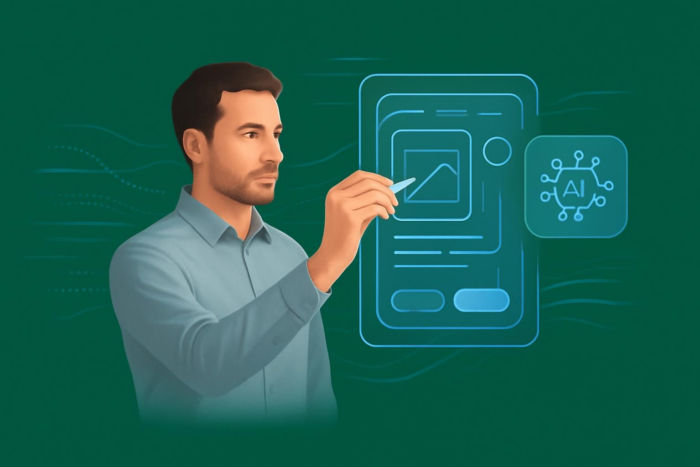
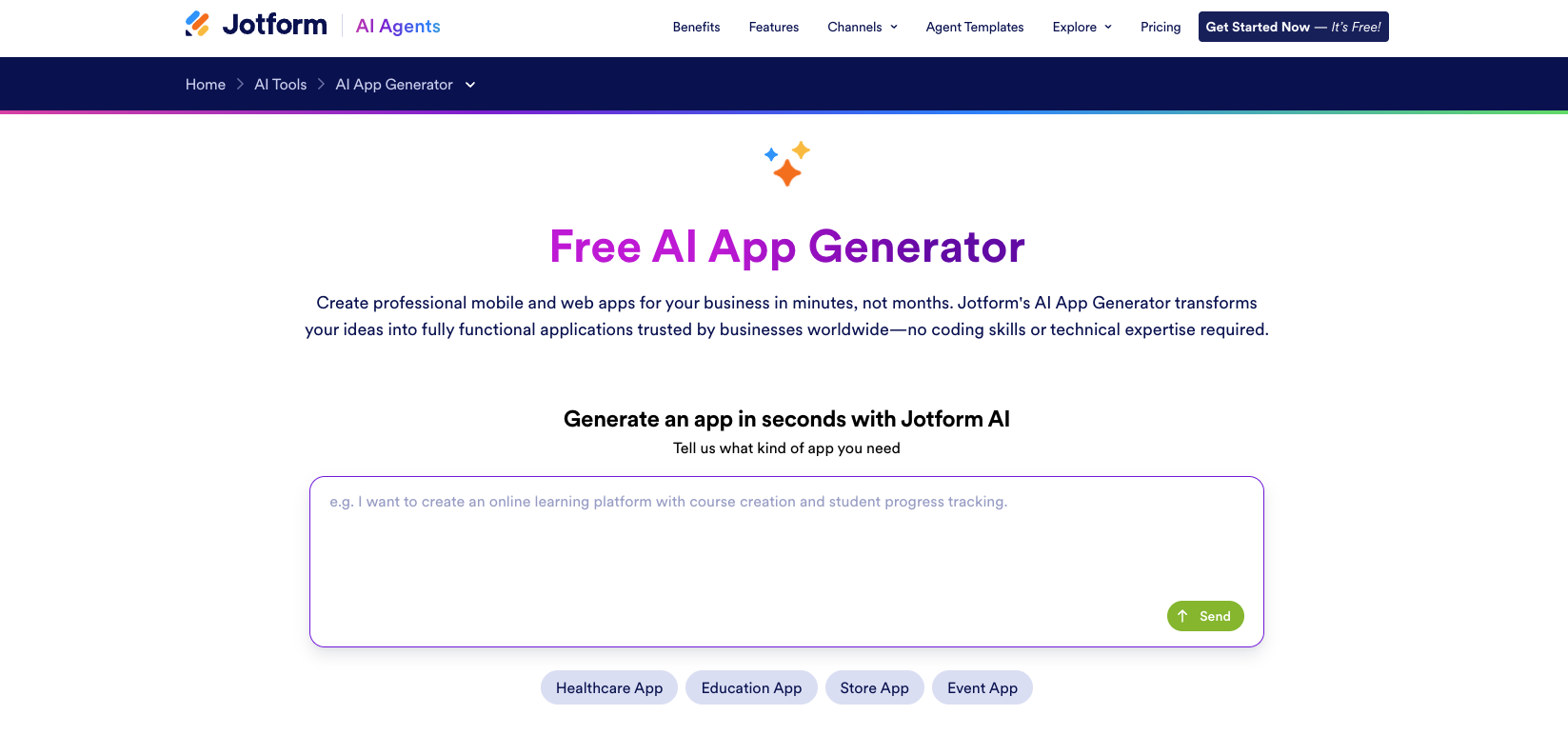

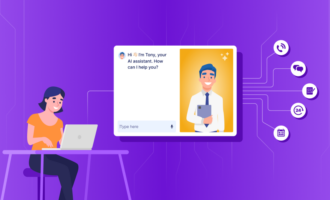


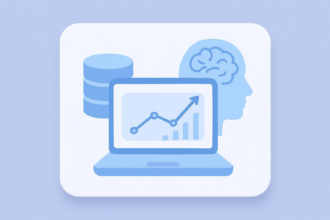
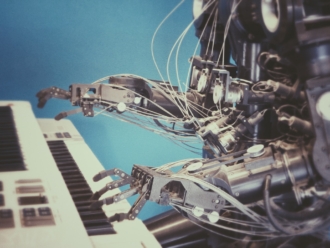
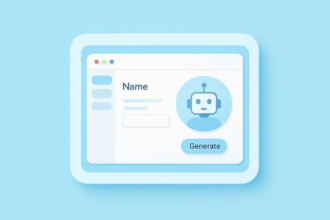
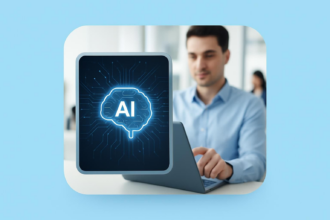


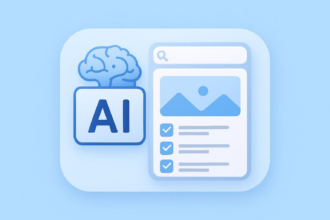




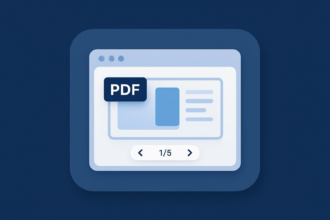
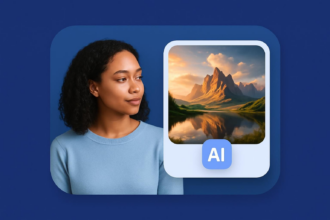
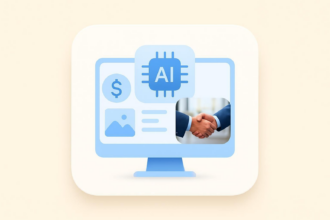

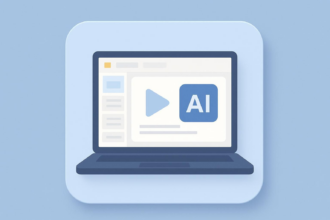


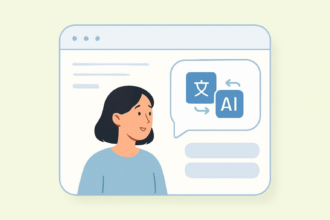
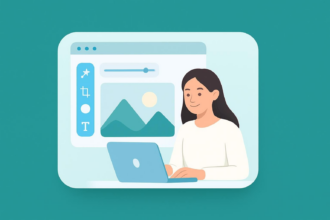


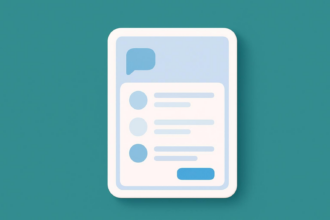




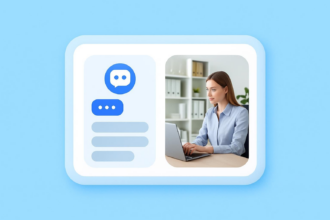

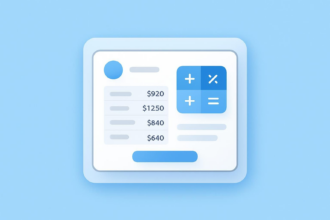
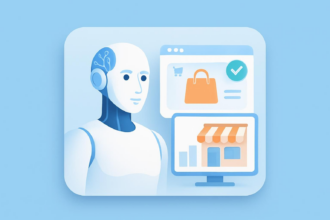

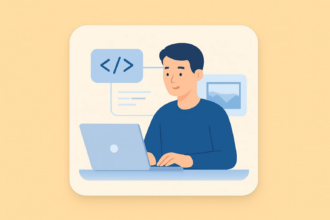
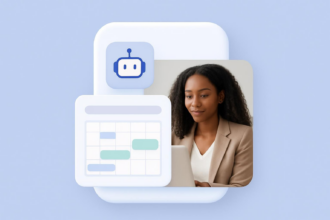
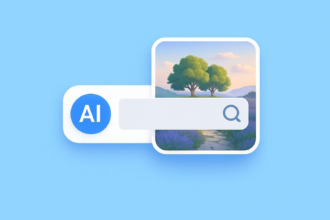


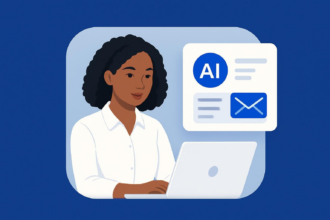
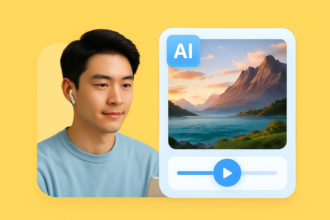
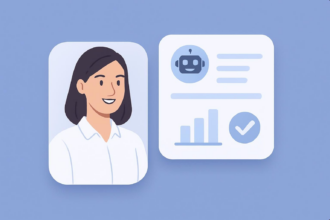


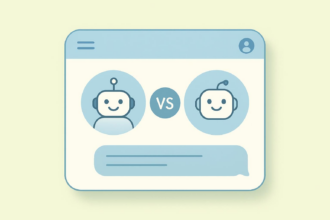

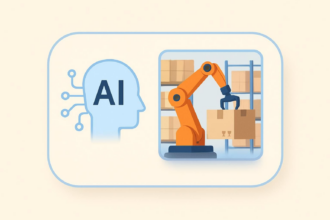



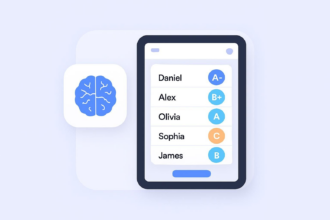
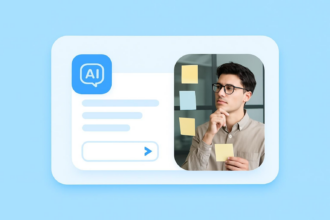




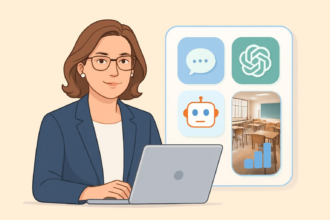


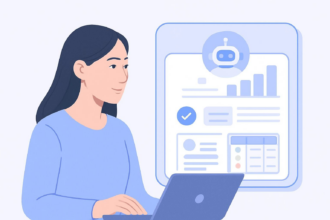

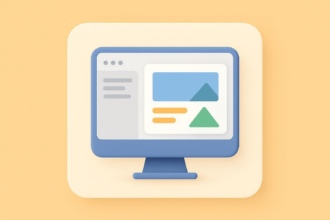
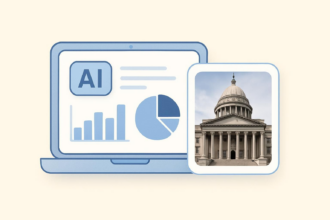

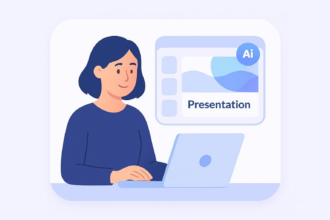
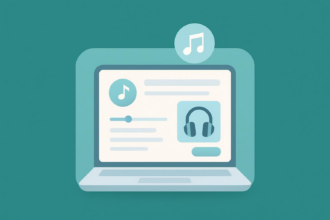
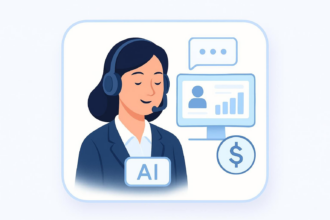
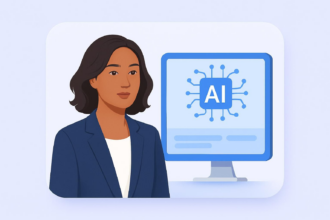

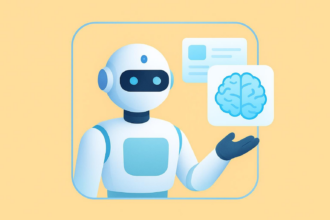










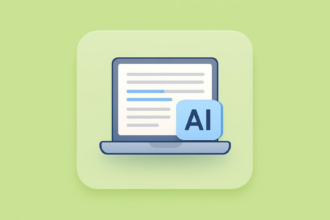
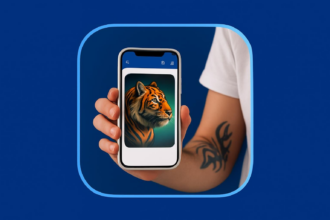
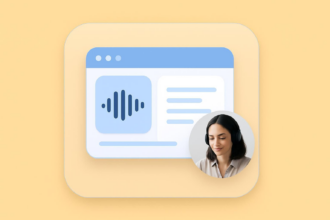

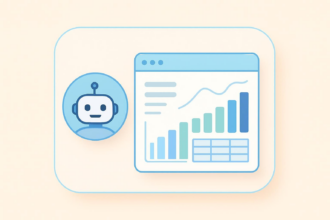


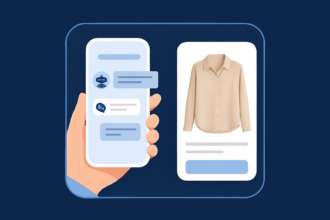
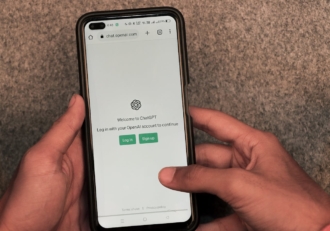

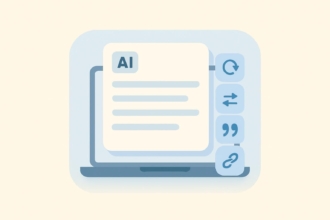
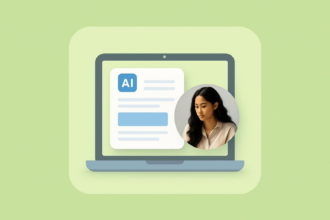
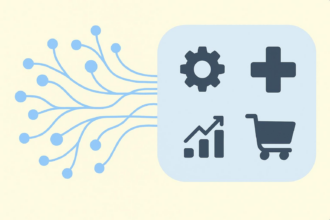
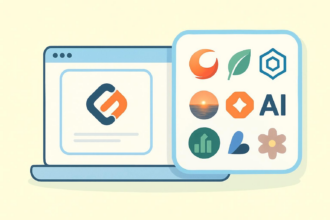


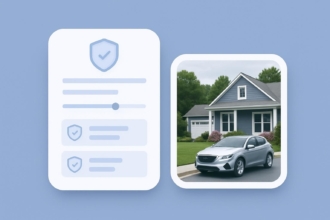


Send Comment: